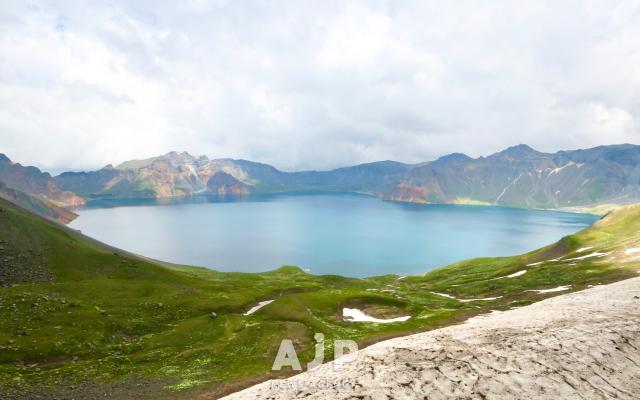
Baekdu Mountain, July 07 (AJP) -
Surrounded by steep cliffs streaked with greens and reds, Heaven Lake at the top of Baekdu Mountain appears like a pool painted with deep blue and navy ink. Not a ripple disturbs its surface. From the western and northern slopes, the lake mirrors the jagged ridgelines and the fractured walls that encircle it, an untouched reflection resting in complete silence.
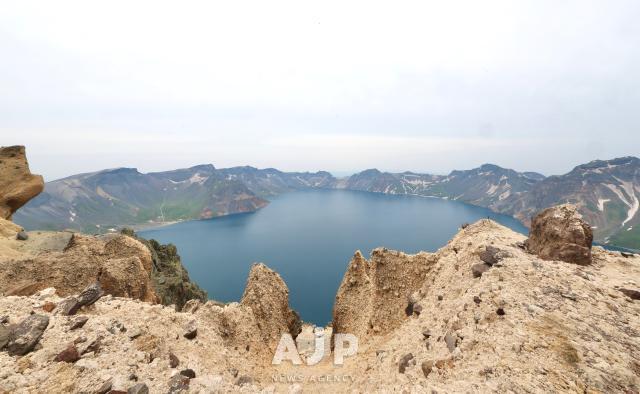
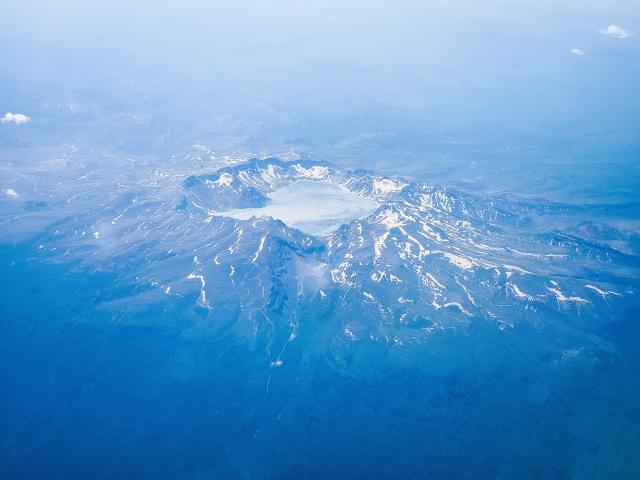
In late June, I visited both the North and West Slopes of Baekdu Mountain, located in China’s Jilin Province. The surrounding peaks were mostly rocky, and in the few flat patches, bright green moss and white wildflowers had just begun to bloom. Snow and ice still clung to the corners of the trail. The light shifted constantly, filtering through swift, breaking clouds that raced across the sky. Beneath the cliffs, large gray boulders lay scattered, as if frozen in mid-collapse.
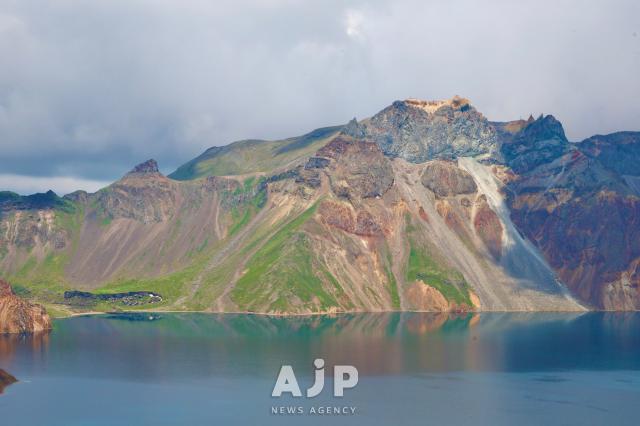
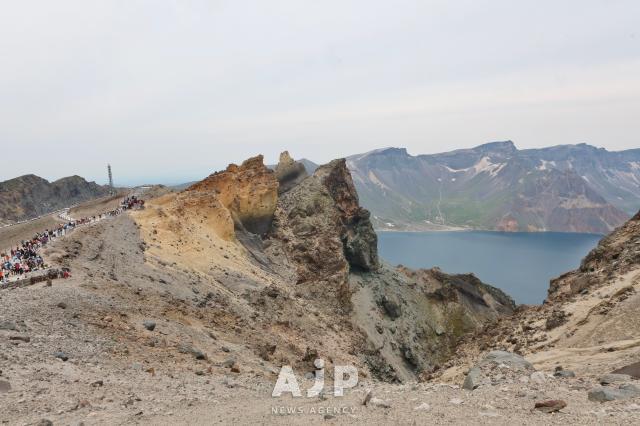
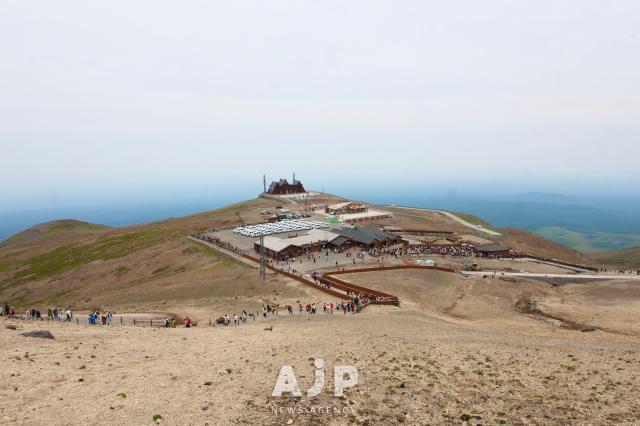
To reach Heaven Lake, visitors must transit twice. First, they board a 48-seat tour bus from the departure point, then a nine-seater van that snakes upward for about 40 minutes. From there, it is another 15-minute climb on foot. The sight of people ascending the final stretch resembles a solemn procession. Lined up like pilgrims on a hillside path too vast to measure, it is only when you see the scale of the human figures against the mountain that the full size of Baekdu becomes real.
The scene is breathtaking from every angle. Tranquil water is embraced by monumental peaks, and behind you, bizarre rock formations spread endlessly across the skyline. No matter where you stand, Baekdu offers a kind of magnificence that defies comparison.
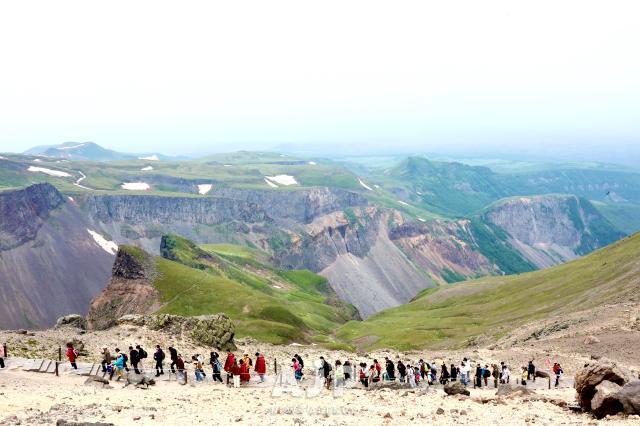
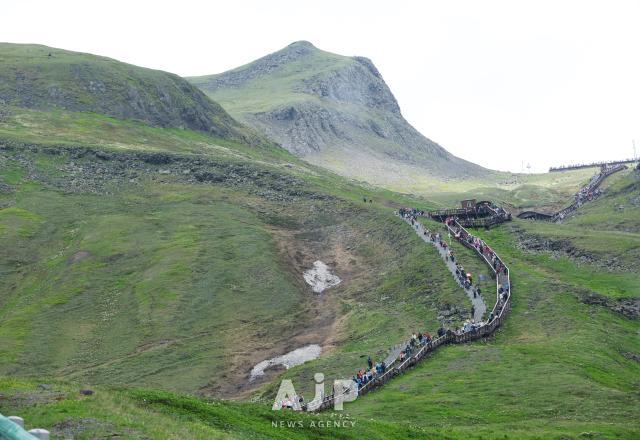
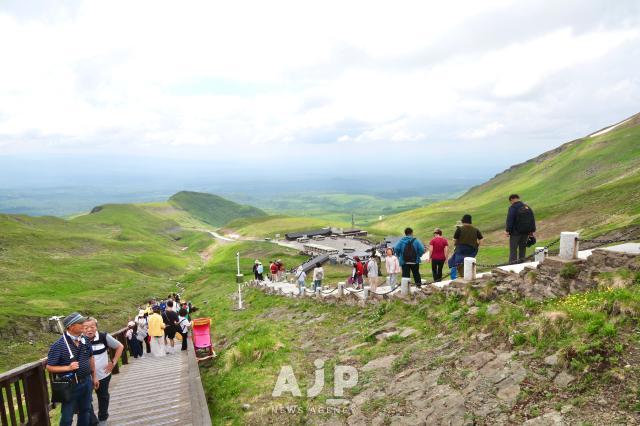
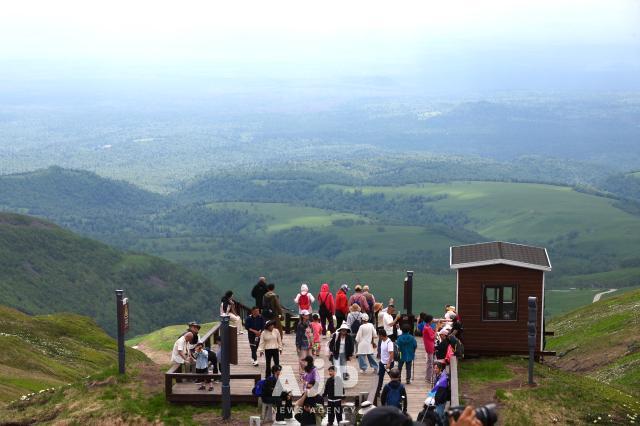
Everyone had a phone in hand, stopping every few steps for a picture. The narrow stairs leading to the lake were clogged with people trying to capture the view. Many jostled to move forward, squeezing between shoulders. Others climbed the wooden safety barriers to snap their photos. The ropes lining the stairs felt too loose for comfort, and with sheer cliffs on either side, any misstep could be dangerous.
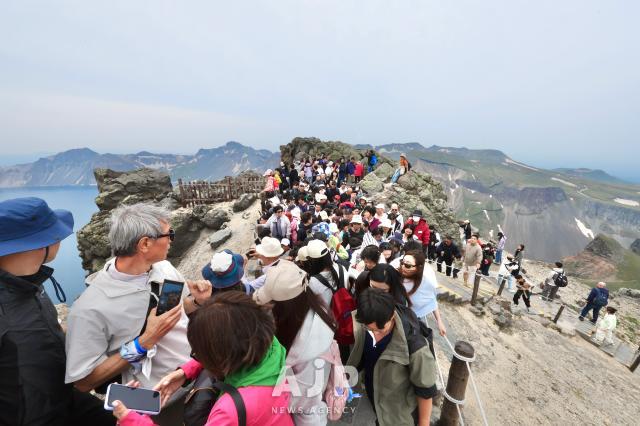
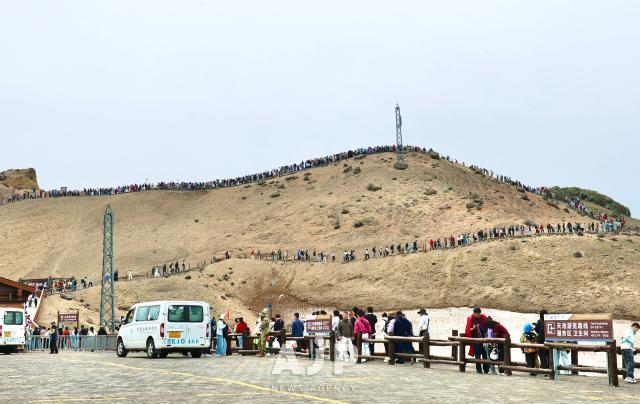
As a photojournalist, my goal was not just to see the lake but to photograph it fully and clearly. Finding the right spot was difficult in the crowd, and time was limited. I waited for a less crowded section and got lucky. Someone stepped away, and I slipped into the gap. I positioned my feet through the fence rails, leaned forward on tiptoe, and raised my arms high to frame the shot without heads or hands intruding. Without this effort, getting a clear photo of Heaven Lake, one without someone else's selfie, would have been nearly impossible.
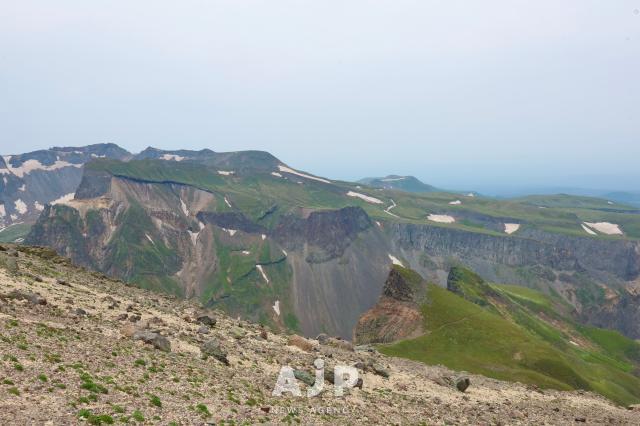
Though Baekdu Mountain offers three routes, North, West, and South, I only visited the North and West during this trip. The South Slope is only open for a few months each summer, with strict daily entry limits.
The North Slope is the more accessible of the two. From the parking lot, it is only a 15-minute walk to the lake. The terrain there feels lunar, barren, almost Martian. When you turn around mid-climb, the surreal rock formations cascade behind you, layer after layer, like a dreamscape. The West Slope takes about an hour to hike and has steeper stairs. But the landscape is lush and green, dotted with wildflowers, evoking the feeling of walking across a high alpine meadow. From the top, the open plateau stretches toward the sky.
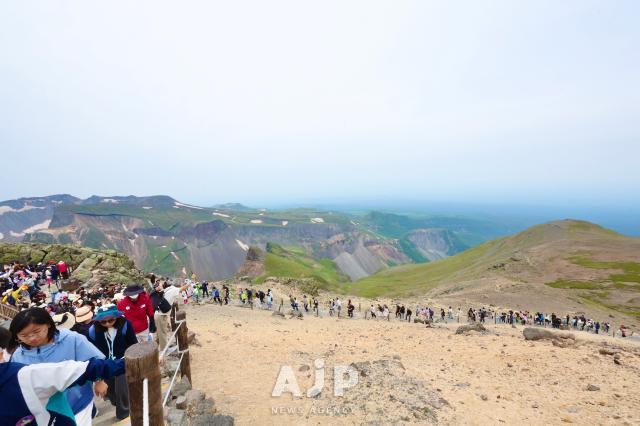
From the North Slope, you can take a 30-minute bus ride followed by a walk to reach Changbai Waterfall. The lake’s waters flow out through a break in the crater wall and plunge 68 meters down in a spectacular vertical fall. Surrounded by sheer stone walls, the waterfall roars from a hollowed basin and leaves a lasting impression of scale and awe.
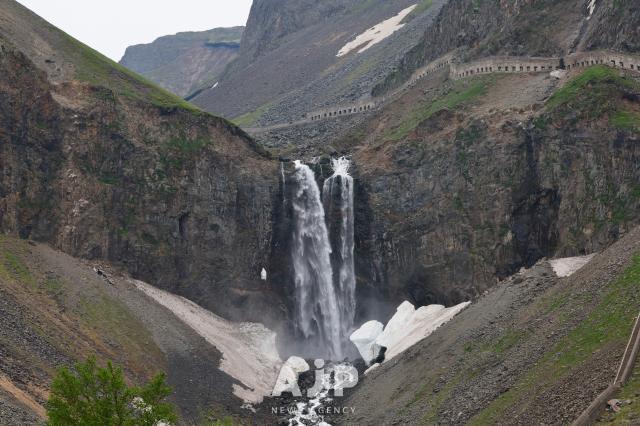
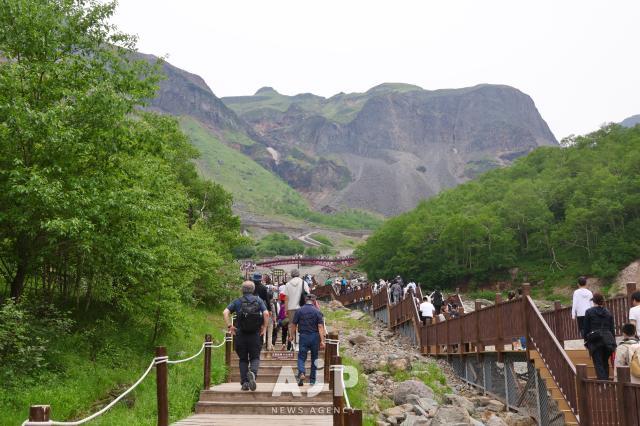
Heaven Lake, located at the summit of Baekdu Mountain, is a volcanic crater lake that straddles the border between North Korea and China. Its surface sits at an elevation of 2,267 meters above sea level. The lake covers an area of 9.165 square kilometers, with a circumference of 14.4 kilometers, an average depth of 213.43 meters, and a maximum depth of 384 meters. Holding approximately 1.955 billion cubic meters of water, it is the deepest lake not only on the Korean Peninsula but also in all of China. It is rare to find a lake formed at the peak of a mountain like this.
Heaven Lake was created by water collecting in the caldera of Baekdu Mountain. About 61 percent of its water comes from underground springs and glacial melt, 30 percent from rain and snow, and the remaining 9 percent from surrounding runoff. Even though water flows out through the waterfall, the lake remains full thanks to this continuous replenishment.
Still, Heaven Lake is not something you can see every day. On average, it is visible only around 100 days a year. For more than 265 days, it is shrouded in fog, rain, or snow. Locals say it takes the virtue of three generations to be blessed with a clear view. And even then, a full day of uninterrupted clear skies is exceedingly rare.
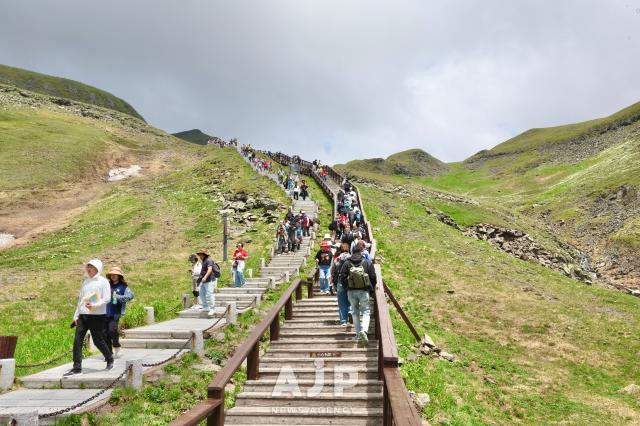
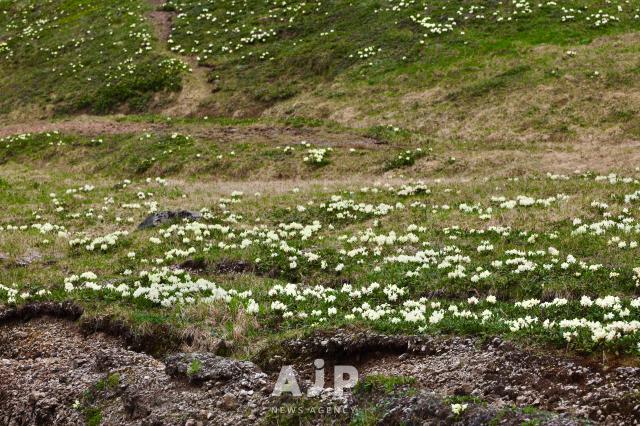
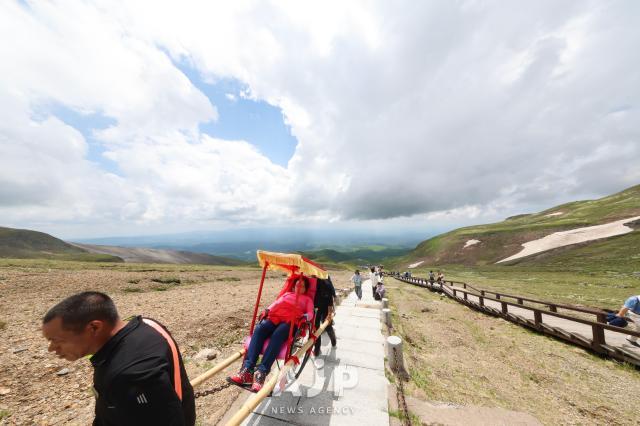
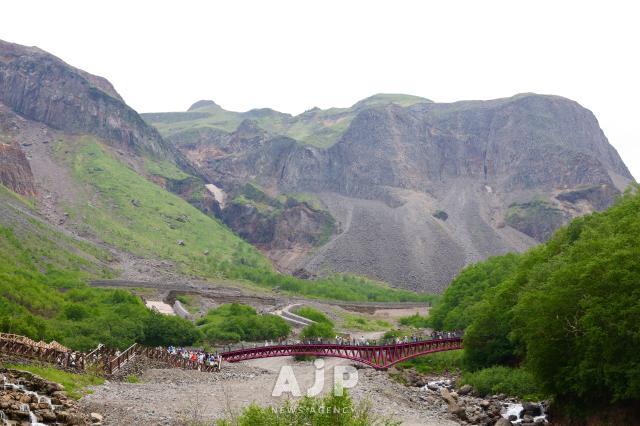
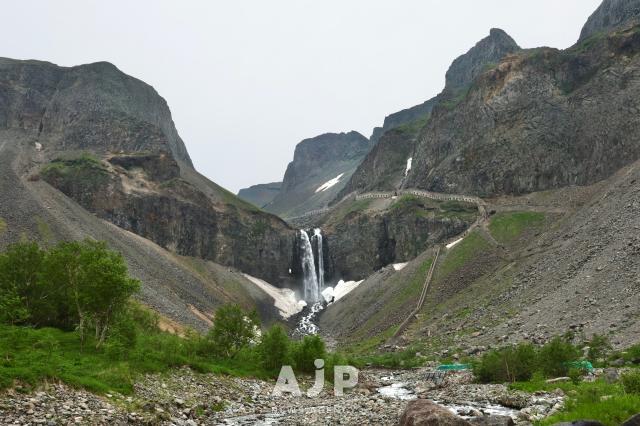
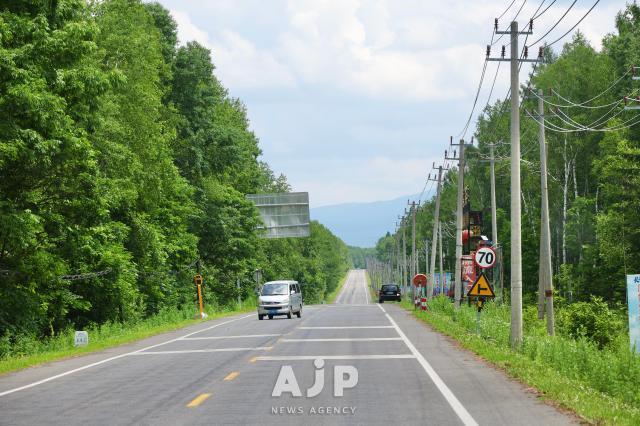
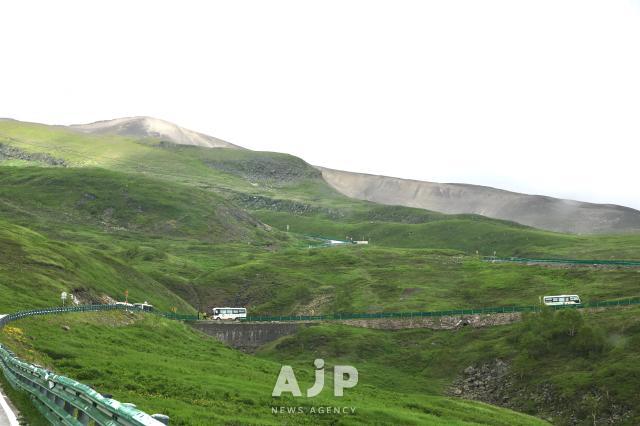
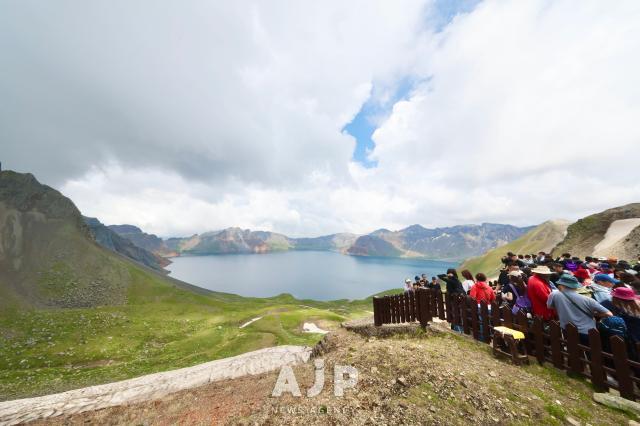
Copyright ⓒ Aju Press All rights reserved.




